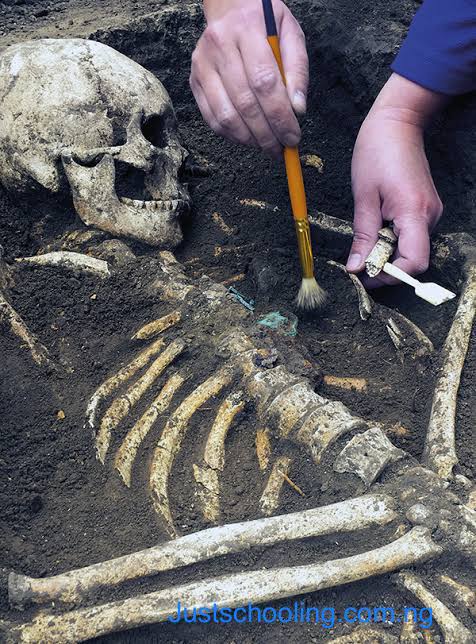Universities With the Lowest Cut-Off Marks For Archaeology in Nigeria
Are you trying to find the list of Nigerian universities with the lowest cut-off mark required to get admitted to the Archaeology programs? Read on to know Nigeria Universities with the lowest cut-off mark.
If you want to pursue a career in Archaeology but are unsure about the most recent jamb cutoff mark for a course like Archaelogy. Here is a list of Nigerian institutions that have cut-off mark that we have verified; it is the lowest of all the universities in Nigeria that provide Archaelogy program.
READ ALSO: List Of Universities That Has Lowest Cut-off Mark For Industrial Chemistry
Universities With the Lowest Cut-Off Marks For Archaeology in Nigeria

To gain admission into an archaelogy program at a Nigerian university, meeting the cut-off mark for the subject is essential. The following universities have some of the lowest cut-off marks for Archaelogy program
1. Ahmadu Bello University, Zaria (ABU)
Cut off mark: 180
The Sardauna of Sokoto, Alhaji Sir Ahmadu Bello, who was the first premier of Northern Nigeria, is honoured with the naming of the university.
There is a large range of undergraduate and graduate programs that are offered by the university. Additionally, the university provides associate degrees, vocational programs, and remedial programs. A substantial medical curriculum is offered by the university, which also operates its very own A.B.U. Teaching Hospital, which is among the most extensive teaching hospitals in Nigeria and all of Africa.
2. University of Ibadan (UI)
Cut off mark:160
The first university in Nigeria was the University of Ibadan, sometimes known as UI for short. It was founded in 1948 and is affectionately referred to by its students. The institution was a College of the University of London that participated in a special connection plan up until 1962, when it transitioned into a full-fledged autonomous university. The University, which began with academic programs in the fields of arts, science, and medicine, has since evolved into a comprehensive citadel of learning, offering academic programs in seventeen different faculties. These faculties include the following: arts, science, basic medical sciences, clinical sciences, agriculture, the social sciences, education, veterinary medicine, pharmacy, technology, law, public health, dentistry, economics, renewable natural resources, environmental design and management, and multidisciplinary studies.
3. University of Jos (UNIJOS)
Cut off mark: 180
Because it is situated in Jos, a state in Nigeria’s Middle Belt Region, sometimes known as “J-town,” the University of Jos is able to take advantage of the meteorological conditions that are typical of this region. Unijos is located in a climate that is conducive to the cultivation of traditional Nigerian crops and livestock, and this support is provided by the climate. The fact that the state is one of the most sought-after vacation spots for tourists and expatriates is evidence that the weather conditions at the University are not completely harsh. This is clear from the fact that the state serves as a destination for vacations.
4. University of Nigeria, Nsukka (UNN)
Cut off mark: 170
Nsukka, which is located in Enugu State, is the location of the federal institution known as the institution of Nigeria, or UNN for short. This university is located in the eastern section of Nigeria. Within the state of Enugu, the University of Nigeria is comprised of three campuses: Nsukka, Enugu, and Ituku-Ozalla. The institution was established by Nnamdi Azikiwe in 1955 and publicly opened its doors on October 7, 1960.
The educational system in the United States served as the inspiration for the establishment of the University of Nigeria, which is the first indigenous and one of the first independent universities in Nigeria. It was the first university in Africa to receive land grants, and it is currently ranked among the top five most prestigious universities in Nigeria. A total of 102 academic departments and 17 faculties are included in the university. A total of 108 undergraduate programs and 211 postgraduate programs are available to students at this university.
FAQS
What is the study of archaeology?
Archaeology is the study of cultures living in the past. Archaeologists are interested in the different ways in which people lived in the past, including how they worked, how they travelled over the terrain, how they traded with others, and what they believed. A deeper understanding of the past may assist us in better comprehending not just our own society but also the societies of other cultures.
What is the function of Archaelogy?
In order to get insight into how people lived during particular eras and locations, archaeologists make use of artifacts and features. They are interested in learning about the daily lives of these individuals, the manner in which they were ruled, the manner in which they interacted with one another, as well as the beliefs and values that they held.
Where does Archaelogist work?
The majority of them are employed in historic sites, archeological parks, or museums. The management of artifact collections, employment in education, or public programs are all potential careers for archaeologists. There is a possibility that they will become administrators who oversee programs that are associated with research, collecting, education, and show cases.









